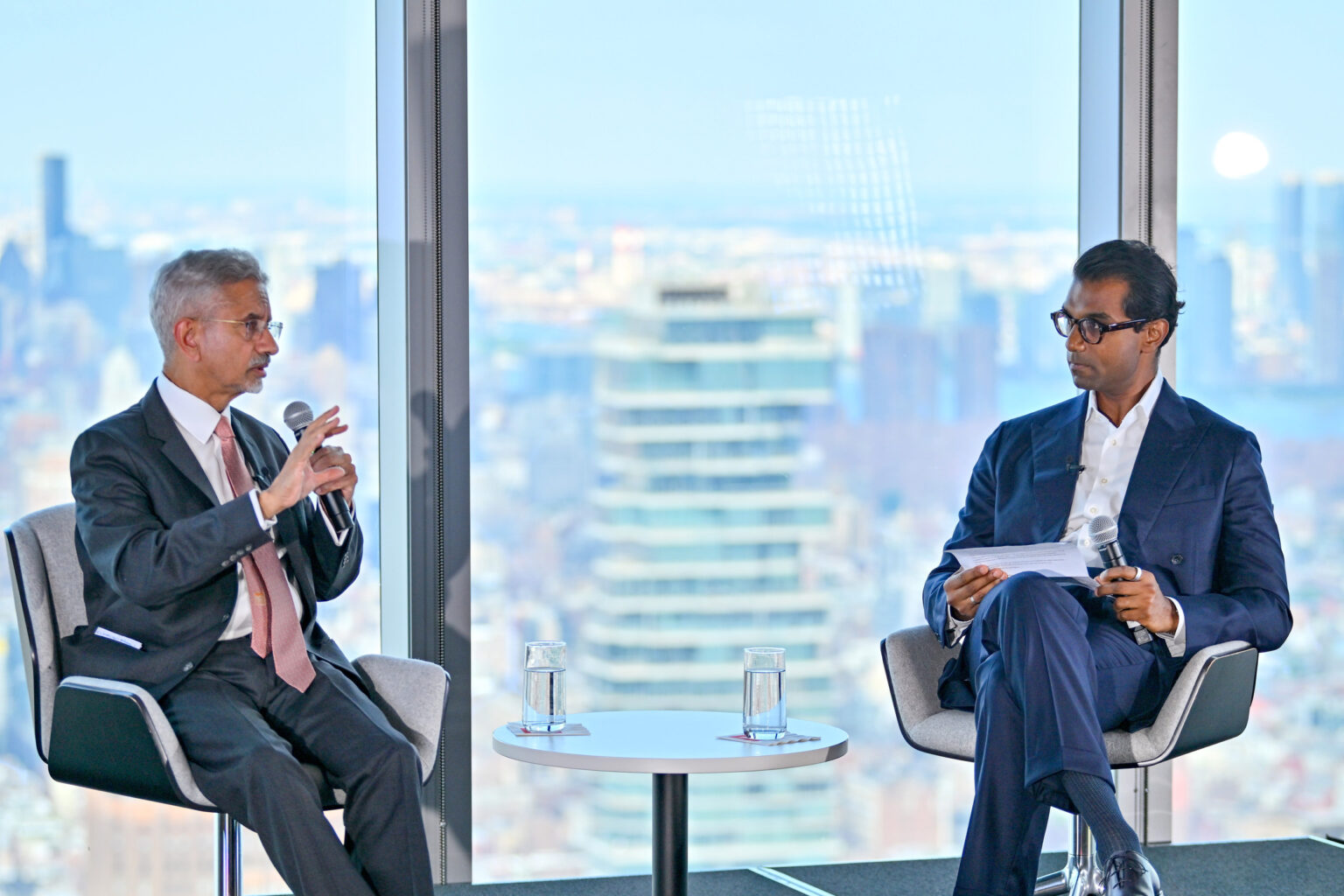India is hopeful of reaching a trade deal with U.S. President Donald Trump’s administration very soon, Indian foreign minister Subrahmanyam Jaishankar told Newsweek in an interview.
Trump has set a July 9 deadline for imposing reciprocal tariffs, but trade talks have run into obstacles including discussions over duties on farm goods, steel and car parts. Trump has voiced optimism for a deal with India, an increasingly important diplomatic partner as well as being the world’s most populous country and a Top Five global economy.
“We are in the middle, hopefully more than the middle, of a very intricate trade negotiation. Obviously, my hope would be that we bring it to a successful conclusion, I cannot guarantee, because there’s another party to that discussion, but no question,” Jaishankar said at Newsweek’s office.
“I believe it’s possible, and I think we’ll have to watch this space for the next few days,” he said.
White House Press Secretary Karoline Leavitt told a news briefing on Monday that “they are finalizing these agreements.”
Trump has had a friendly relationship with Indian Prime Minister Narendra Modi and Jaishankar also underlined the importance of the ties between the countries within the Quad of countries that serve as a counterweight to China in Asia and the Pacific. The other members are Japan and Australia.
“You have four countries, in a way, four corners of the Indo-Pacific who are actually to have decided that they have a shared interest in creating a stable or more prosperous Indo-Pacific and are willing to work in a very practical basis,” he said, adding that India wanted to stay on good terms with neighboring China.
“We have very strong convergences with the United States. At the same time, we are China’s largest neighbor,” he said.
Jaishankar was speaking nearly two months after the most serious conflict in decades between India and nuclear rival Pakistan, with India striking what it called terrorist targets across the border after an attack on civilians in Kashmir left 26 people dead.
Rejects Pakistan Talks
He rejected an offer of talks with Pakistan on anything except ending terrorism and said India would strike again if needed.
“We are now moving to a policy of no impunity. We will not accept that the terrorists are proxies and somehow, therefore, the state is not culpable. I mean, we think it’s very clear the Pakistani state is up to its eyeballs in this one,” Jaishankar said at Newsweek’s office in New York.
“I think we will strike at terrorists. We will protect. We will exercise the right to defend our people. And I think that message has been made pretty clear.”
Pakistani Prime Minister Shehbaz Sharif expressed his readiness for peace talks last week, saying they could address a wide range of disputes between the countries. Pakistan denies supporting cross-border terrorists.
“We are willing to hold talks on terror, but if there is an expectation that we will talk about other things while they continue their terrorism, I think that’s, you know, that’s not realistic,” Jaishankar said.
“Terrorism cannot be a diplomatic tactic of putting a neighbor under pressure, and saying, oh, OK, come and talk to me. You cannot be a good neighbor and be a terrorist at the same time. So, they have to end that terrorism.”
India struck targets in Pakistan it said it had identified as terrorist bases on May 7 in response to the killing of 26 civilians in an attack on tourists at Pahalgam in Kashmir in April. Pakistan had denied any hand in the killings or other attacks in divided Kashmir, which it contests with India.
Pakistan struck back at India with cross-border shelling and warned that it could resort to nuclear weapons if it felt its existence was threatened.
“We are not going to yield to nuclear blackmail that you know there could be escalation, and therefore we should not do anything,” Jaishankar said.
Iran Offer
The flare-up between India and Pakistan has been overshadowed globally by the war between Israel and Iran, with the United States also joining strikes against Tehran’s nuclear program.
Jaishankar offered India’s help to bring a resolution to the crisis, highlighting its good relations with all parties and the important relationships the world’s most populous country had through trade and migrant workers with the countries of the Middle East.
“We have actually very good relations with both countries, both with Israel and Iran. I mean, we would be, quite honestly, one of the few who have the ability to talk to both of them very openly, very candidly. We have tried to do that for some years now,” he said.
“We know the complexity of this, of this issue, it’s not something which is easily amenable to a solution. So, the long answer is, we are willing to do our part, if there’s any way we can be of any help to either country to others, to the IAEA, to the United States.”
Geopolitical Shifts
Jaishankar said the United States is bringing about a global change with a shift away from alliances and in which countries pursue their own interests more individualistically.
“The change in America’s stance is very fundamental to the world order,” he said. “I would say, you are, you are seeing the emergence of a post-alliance thinking, it’s not that the alliances are going to go away tomorrow, but the alliances are not going to be the fulcrum around which world politics revolves.
“You have the rise of China. You have the rise of India. You have Russia … So yes, I think we are heading for a much more individualistic world, in a way, where countries will pursue their interests more vigorously, not necessarily as collectively as before.”
Read the full article here


